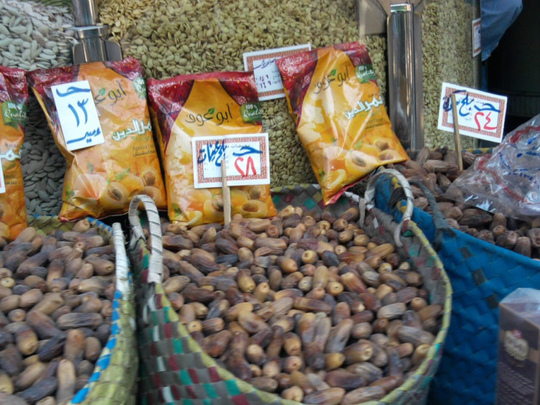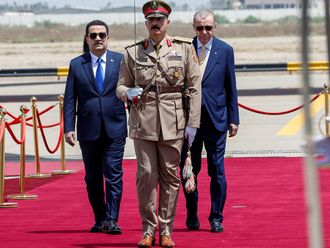
Cairo: Hours after militants unleashed a wave of coordinated attacks against security forces in Egypt’s flashpoint Sinai, Ahmad Sakr, a dates merchant in Cairo, eulogised the army victims in his own way.
He renamed the top brand of his popular merchandise and called it the “Martyrs of Sinai”.
“This is the least we can do for those heroes,” Sakr, 53, said.
On Wednesday, extremists with links to the terrorist Daesh, carried out a dozen attacks against security facilities in North Sinai. The raids, which included suicide attacks, are believed to be the most audacious targeting Egyptian security forces since the army toppled Islamist president Mohammad Mursi in 2013.
Some 17 military personnel and 100 militants were killed in the violence, according to the army.
Hundreds of army and police forces have been killed in militant attacks in Sinai and Egypt’s mainland since Mursi’s overthrow.
“May God incur His wrath on all those who want to harm our army and police,” said Sakr, who trades in dried dates and other goodies associated with Ramadan, which began last month.
Dealers in dried dates in Egypt have the tradition of naming their Ramadan merchandise after celebrities or politicians.
“Before renaming the finest kind of dates at my store to become the ‘Sinai Martyrs’, I originally called it ‘Our Armed Forces’,” said Sakr. “This was not just a way to attract clients, but I wanted to show our gratitude to our army and its sacrifices.”
The “Sinai Martyrs” dates sell for 30 Egyptian pounds (Dh14.2) per kilo.
In Ramadan, the devout break their dawn-to dusk fast with dates following the example of the Prophet Mohammad (PBUH.)
The fruit, eaten dried or soaked in milk, nourishes the body and makes up for the energy lost during the long hours of fasting, say nutritionists.
Drinks made of dried apricot, figs and prunes are also popular in Egypt during Ramadan.
Keeping his tradition of naming his Ramadan goodies after public figures, Hassan Shafae, a date trader in the northern Cairo area of Al Zawya Al Hamra has called the finest brand of the fruit after President Abdul Fattah Al Sissi.
“This man deserves all our backing. He is fighting on several fronts: terrorism, economy and security,” said 56-year-old Shafae.
The price tag for the Al Sissi dates is 28 pounds, according to him. Al Sissi, a former defence minister, became Egypt’s president last year, pledging to re-establish security and reinvigorating economy battered by unrest that followed the 2011 uprising against longtime president Hosni Mubarak.
“My customers like the names I give every year to my dates. This year, I have a good kind of dates called ‘Safinaz’,” he said, referring to Egypt’s most celebrated belly-dancer.
Safinaz, an Armenian national, made local headlines earlier this year after charged with insulting the Egyptian flag by performing in a dance costume patterned after the national flag. In April, an Egyptian court sentenced the dancer to six months in prison and bail of 10,000 pounds.
“The Safinaz dates are in good demand and I sell it for 24 pounds for one kilo,” said Shafae. “Some puritans come to me and ask for this type of dates, using its original name, the Sakuti,” he added. “When I tease them by asking them if they mean the Safinaz dates, they would scold me, saying this naming would invalidate my fasting.”












